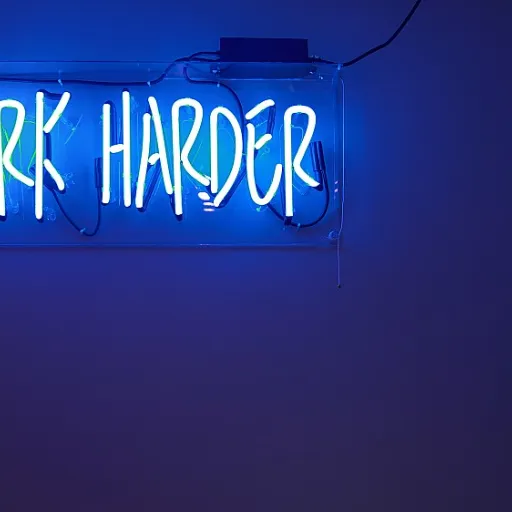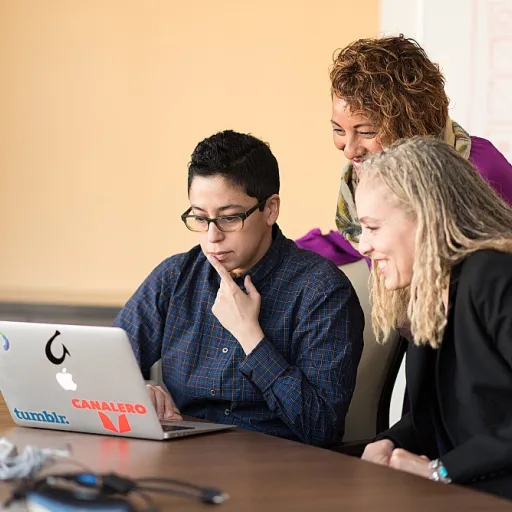
Understanding the importance of diversity in candidate sourcing
Why diversity and inclusion matter in candidate sourcing
Diversity, equity, and inclusion (DEI) are more than just buzzwords in the hiring process. They are essential for building a workplace where every candidate feels valued and every team member can thrive. When organizations focus on diversity and inclusion, they create an environment that welcomes people from different backgrounds, experiences, and perspectives. This leads to a more innovative, adaptable, and successful team.
Research consistently shows that diverse teams outperform less diverse ones. A workplace that prioritizes equity and inclusion attracts top talent, improves employee satisfaction, and helps reduce turnover. Candidates today are looking for jobs where they can bring their whole selves to work and feel respected for their unique contributions. This is why understanding the role of diversity in candidate sourcing is crucial for any hiring strategy.
Inclusion in the hiring process means more than just asking the right interview questions. It’s about creating a fair and supportive environment throughout every stage of sourcing, interviewing, and onboarding. By addressing unconscious bias and crafting thoughtful diversity interview questions, organizations can ensure a more inclusive work environment for all.
- Improved problem-solving and creativity from diverse perspectives
- Better representation of your customer base
- Higher employee engagement and retention
- Enhanced reputation as an inclusive workplace
For those looking to deepen their understanding of how diversity impacts candidate sourcing, exploring the pros and cons of a CV in candidate sourcing can provide valuable context on how traditional hiring tools may support or hinder DEI goals.
As you move forward, consider how every part of your hiring process—from the questions you ask to the way you evaluate answers—can contribute to a more diverse, equitable, and inclusive workplace. This foundation will help you build a team that reflects the world we live in and supports the success of your organization.
Identifying unconscious bias in interview questions
Spotting Bias in Your Interview Questions
When sourcing candidates for a diverse and inclusive workplace, it’s easy to overlook how unconscious bias can slip into interview questions. Even well-intentioned questions can unintentionally exclude or disadvantage certain groups. Recognizing these biases is essential for building a truly diverse workforce and fostering an equitable environment.
- Language matters: Words or phrases that assume a particular background, ability, or experience can make candidates feel excluded. For example, asking about "cultural fit" without defining it may favor people similar to your existing team, rather than those who bring new perspectives.
- Assumptions about experience: Questions that assume traditional career paths or overlook non-linear journeys can disadvantage candidates from underrepresented backgrounds. Instead, focus on skills and adaptability.
- Unintentional stereotypes: Avoid questions that reinforce stereotypes, such as those about work-life balance that might be directed only at certain genders or family situations.
Unconscious bias can also show up in how you interpret answers. For example, valuing certain communication styles over others may lead to missing out on great talent who approach problem-solving differently. Regular diversity training for hiring teams helps raise awareness and reduce these biases in the hiring process.
To further understand how job roles can shape the types of questions you ask, check out this resource on understanding the job scope of an M&E engineer. It highlights how job-specific requirements can influence your approach to diversity, equity, and inclusion (DEI) interview questions.
Identifying and addressing unconscious bias is a critical step in creating an inclusive work environment. It sets the foundation for crafting interview questions that support diversity, equity, and inclusion, and ensures every candidate has a fair chance to demonstrate their value to your team.
Crafting inclusive diversity interview questions
Building Questions That Promote Equity and Inclusion
When crafting interview questions focused on diversity, equity, and inclusion (DEI), it’s essential to ensure that every candidate feels respected and valued. The goal is to create a space where people from all backgrounds can share their experiences and perspectives. This helps you assess not just skills, but also a candidate’s understanding of what it means to work in a diverse and inclusive environment.
- Use open-ended questions: These encourage candidates to elaborate on their experiences with diverse teams and inclusive work environments. For example, "Can you describe a time you contributed to an inclusive workplace?"
- Avoid assumptions: Questions should not presume a candidate’s background or experiences. Instead, focus on their approach to equity and inclusion in the workplace.
- Focus on real scenarios: Ask about specific situations related to diversity and inclusion, such as "How have you handled a disagreement in a diverse team?"
- Be mindful of language: Use terms that reflect respect for all identities and avoid jargon that may exclude or confuse candidates.
It’s also important to consider the context of your industry or location. For example, if you’re sourcing candidates for roles in healthcare, you might want to explore opportunities and challenges in finding nursing jobs in Maine to understand how diversity and inclusion play out in specific job markets.
Remember, the way you phrase your diversity interview questions can impact how comfortable candidates feel sharing their experiences. The right questions help you identify individuals who will support a culture of equity and inclusion, contributing to a more diverse workforce and a stronger team dynamic.
Examples of effective diversity interview questions
Sample Questions That Promote Diversity and Inclusion
When aiming to foster a diverse and inclusive workplace, the interview questions you ask play a crucial role. Well-crafted diversity interview questions help you understand a candidate’s experience with diversity, equity, and inclusion (DEI), and how they might contribute to a more inclusive work environment. Here are some examples of effective questions that can reveal a candidate’s understanding and commitment to DEI:
- Can you share an experience where you worked with people from diverse backgrounds? This question helps assess how comfortable the candidate is in a diverse team and what they learned from the experience.
- How do you contribute to an inclusive work environment? This allows candidates to explain their approach to equity and inclusion in the workplace, and what actions they take to support a diverse workforce.
- What does diversity, equity, and inclusion mean to you in the context of your job? This question uncovers the candidate’s personal understanding of DEI and how it influences their work and interactions with team members.
- Describe a time when you witnessed or addressed bias in the workplace. What did you do? This helps you evaluate the candidate’s awareness of unconscious bias and their willingness to take action to create a more equitable environment.
- How would you handle a situation where a colleague feels excluded? This question explores the candidate’s empathy and problem-solving skills in maintaining an inclusive workplace.
- Have you participated in diversity training or initiatives? What did you learn? This can show the candidate’s proactive attitude toward learning about diversity and inclusion.
Why These Questions Matter
These sample diversity interview questions are designed to go beyond surface-level answers. They encourage candidates to reflect on real experiences and demonstrate their commitment to building a diverse, inclusive, and equitable work environment. By integrating such questions into your hiring process, you can better identify candidates who will actively support your organization’s DEI goals and contribute positively to your team’s culture.
Remember, the way you phrase your questions and the follow-up you provide can make a significant difference in the answers you receive. Open-ended, thoughtful questions invite candidates to share their authentic perspectives, helping you build a more diverse and inclusive workforce.
Evaluating responses to diversity interview questions
What to Look for in Candidate Responses
When evaluating answers to diversity interview questions, it’s important to go beyond surface-level statements. The goal is to understand how a candidate’s experiences and values align with your organization’s commitment to diversity, equity, and inclusion (DEI). Here are some practical ways to assess responses:
- Depth of Understanding: Does the candidate demonstrate a clear understanding of diversity, inclusion, and equity concepts? Look for real examples of how they have contributed to an inclusive work environment or supported diverse team members.
- Self-Awareness: Pay attention to whether the candidate acknowledges their own learning journey regarding DEI. Are they open about areas where they’ve grown or needed diversity training?
- Action Orientation: Strong responses often include specific actions the candidate has taken to promote an inclusive workplace. This could be through mentoring, advocating for equity inclusion, or participating in initiatives that foster a diverse workforce.
- Respect for Different Perspectives: Effective answers show respect for people from all backgrounds and a willingness to learn from others. Candidates should be able to describe how they’ve worked with diverse teams and navigated challenges in a positive way.
Common Pitfalls in Evaluating DEI Interview Answers
- Generic Statements: Watch out for answers that are too vague, such as “I value diversity” without examples or context.
- Overemphasis on Compliance: Some candidates may focus only on following rules rather than actively contributing to an inclusive work environment.
- Unconscious Bias: Be mindful of your own biases when interpreting responses. Ensure you’re not favoring answers that simply mirror your own views, but rather those that genuinely reflect a commitment to diversity equity and inclusion.
Using a Structured Evaluation Approach
To ensure fairness in the hiring process, consider using a simple table or rubric to rate candidate responses to diversity inclusion interview questions. This can help standardize the evaluation and reduce bias. For example:
| Criteria | Strong Answer | Average Answer | Weak Answer |
|---|---|---|---|
| Understanding of DEI | Clear, nuanced, with examples | Basic, some examples | Vague, no examples |
| Action Orientation | Describes specific actions taken | Mentions actions, lacks detail | No actions described |
| Respect for Diversity | Demonstrates respect and learning | States respect, little evidence | No mention of respect |
By applying a consistent approach, you can better identify candidates who will contribute to a diverse inclusive workplace and help build a strong, equitable team.
Integrating diversity interview questions into your sourcing strategy
Embedding Diversity Interview Questions in Your Sourcing Workflow
Integrating diversity, equity, and inclusion (DEI) interview questions into your candidate sourcing strategy is more than just a checklist item. It’s about making inclusive hiring a natural part of your process. Here’s how you can make these questions a consistent and meaningful element of your hiring process:
- Standardize Your Approach: Develop a set of core diversity interview questions that reflect your organization’s values. Ensure these are included in every interview for relevant roles, so each candidate has the same opportunity to demonstrate their understanding of diversity and inclusion.
- Train Your Team: Provide diversity training for all team members involved in the hiring process. This helps interviewers understand why these questions matter and how to evaluate answers fairly, reducing the risk of unconscious bias.
- Document and Review: Keep a record of candidate responses to inclusion interview questions. Regularly review these answers to identify patterns and areas for improvement in your approach to building a diverse workforce.
- Align with Job Requirements: Tailor your questions to the specific work environment and team dynamics. For example, if the role involves working in a diverse team, ask about past experiences in inclusive workplaces or how the candidate would contribute to an equitable environment.
- Continuous Improvement: Gather feedback from both candidates and hiring team members about the interview questions. Use this input to refine your questions and ensure they remain relevant and effective for promoting diversity equity and inclusion.
By embedding these practices into your sourcing strategy, you create a more inclusive work environment and attract candidates who value equity and diversity. This approach not only strengthens your team but also supports a culture where all people feel they belong and can thrive.













